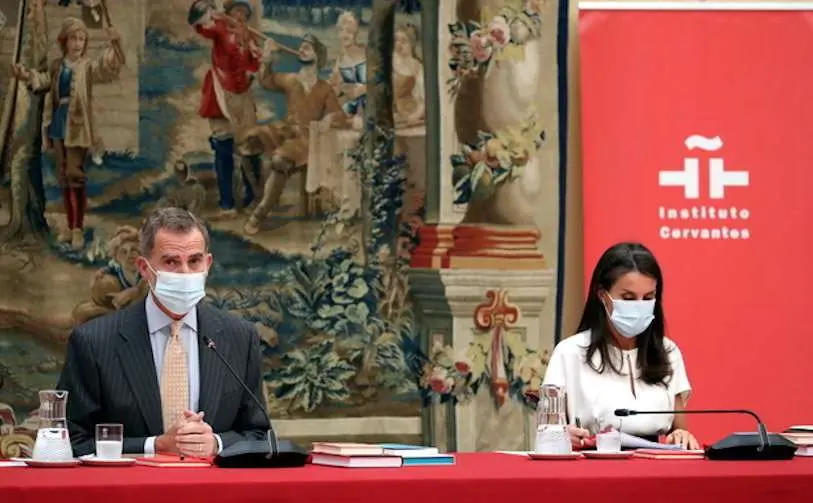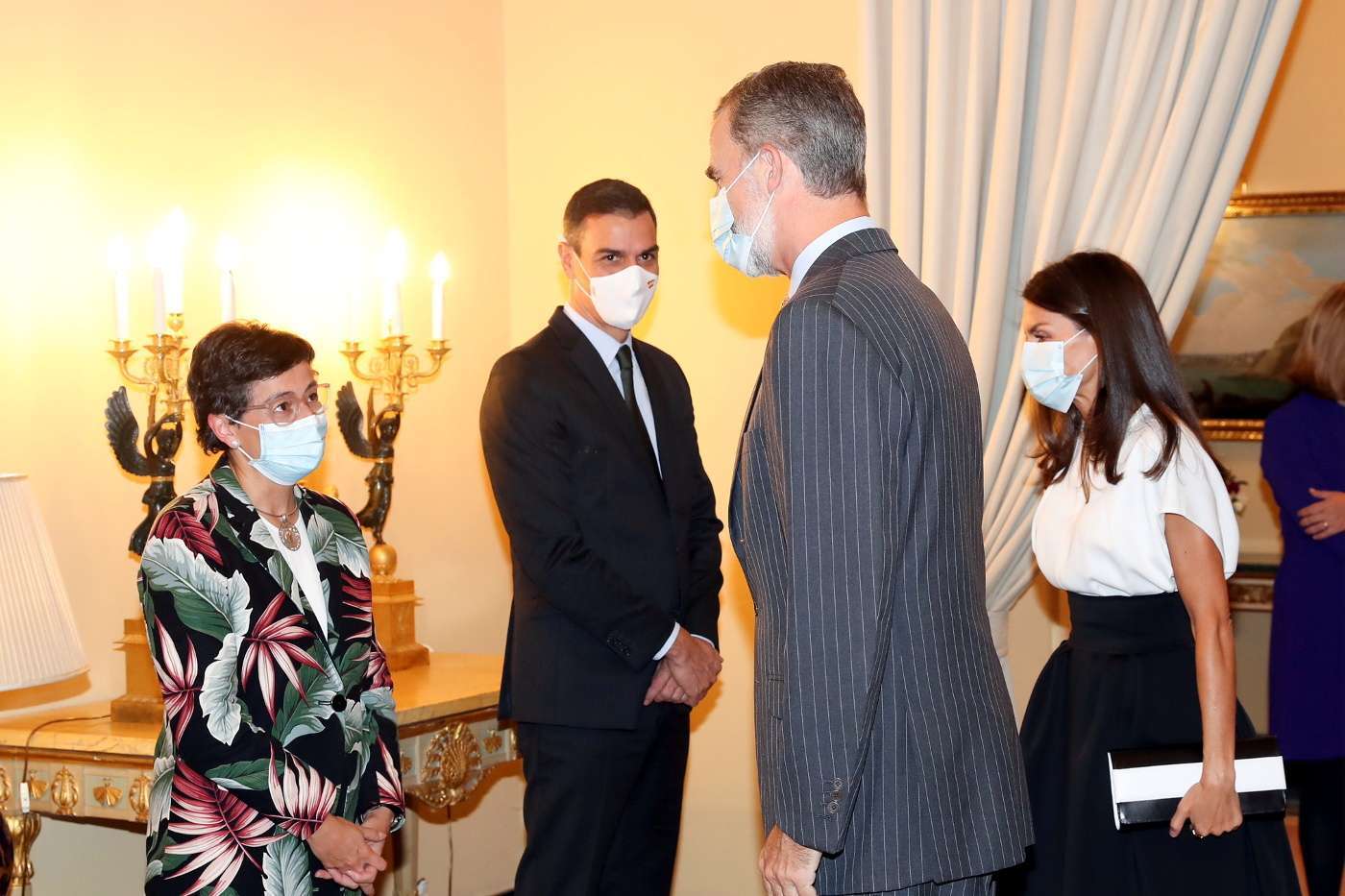Felipe VI states that "Spanish is an unquestionable cultural and economic engine"

The King stated today at the annual meeting of the Board of Trustees of the Instituto Cervantes that "Spanish is an unquestionable cultural and economic motor, not only because of its potential as a language of learning in the world, but also because of the values it embodies and transmits".
At the annual session of the highest governing body of the organization that promotes the Spanish language and culture in Spanish, Felipe VI extolled these values, which are, he said, "shared by Spain and by so many nations on various continents that, through a long and rich joint history, have become what they are: open and vital societies.
Accompanied by Doña Letizia, the monarch presided this afternoon at the Royal Palace of El Pardo (Madrid) over a meeting in which the situation of the Cervantes Institute in a year marked by the covid-19 was reviewed.
The director, Luis García Montero, explained to the employers the "complicated" economic situation of the Institute due to the "strong impact" of the pandemic, which has generated losses of 18 million euros so far this year. However, as he said in a press conference in the morning, the institution is facing these difficulties "with courage and strength".
After García Montero's report, in which he took stock of the academic and cultural activity carried out during the recently concluded year, the Minister of Foreign Affairs, Arancha González Laya, and the President of the Government, Pedro Sánchez, who is the executive president of the Board of Trustees, spoke.

Two of the patrons who were present at El Pardo also spoke: the writer and Nobel Prize winner in Literature Mario Vargas Llosa and the president of the Film Academy, Mariano Barroso. On the other hand, the novelist Eduardo Mendoza and the Peruvian Carlos Herrera, director of the Inca Garcilaso Cultural Center, did it by telematic means.
Several other patrons followed the meeting through the internet, especially the Hispanic Americans, such as Elena Poniatowska, Ida Vitale, Sergio Ramirez or Enrique Graue.
The researcher Eva Ortega-Paíno, scientific director of the CNIO (National Center for Cancer Research) biobank and general secretary of RAICEX (Network of Associations of Spanish Researchers and Scientists Abroad) spoke about the projection of science in Spanish through this organization.
García Montero wanted to remember the two patrons who died this year, Plácido Arango and the Cervantes Juan Marsé prize, and to welcome the 10 new members who joined for the first time, among them Isabel Coixet, Cristina Fernández Cubas, Carmen Linares, the Mexican Gonzalo Celorio or the Colombian Piedad Bonnett.
In his words, the poet and professor of literature included several Machadian references: the hope of "the April rains and the May sun" and "the grace of a green branch". "The shadow of Antonio Machado's dry elm, split by lightning and in its rotten half," he said, "becomes a disturbing metaphor when to the cuts inherited from old crises and the budget extensions is added the difficult situation of a pandemic that has punished very hard our possibilities of self-financing".








